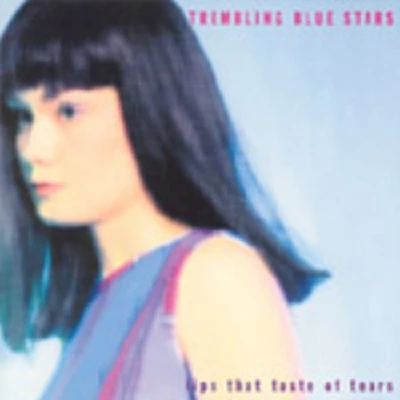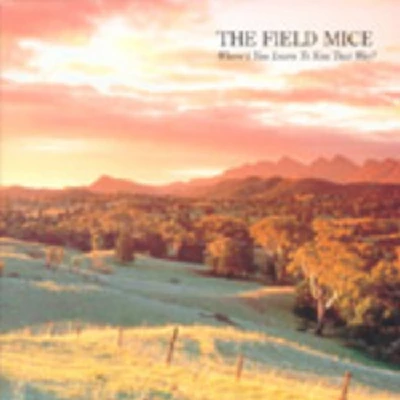Miscellaneous
-
Interview with Matt Haynes
published: 12 /
4 /
2002

Matt Haynes, former co-owner of the legendary Sarah records and now sole guardian of Shinkansen Records, talks to Cila Warncke about his record label, and maintaining a sense of personal politics in a world of commercialism
Article
“We always made sure our fanzines looked professional – it only cost a few pence more to get them printed properly,” Matt Haynes, founder and sole guardian of Shinkansen Records, says earnestly. This was, of course, back when he was a music-loving physics student at Bristol University (along with future Sarah Records partner Clare Wadd). While it’s been some time since his student days he still wears his youthful absolutism like a favourite worn jumper.
“I hated seeing fanzines that people put out, full of spelling mistakes, badly photocopied. They seemed to have this attitude that it was okay because they were just fanzines – that somehow it was more indie to look sloppy. But that doesn’t make you more alternative, it just makes you a bit lazy.”
In this day of DIY-cool this remark has a slightly Puritanical ring to it. The idea that there is good quality and bad quality and that the difference is not merely one’s subject position is dangerously unmodern – and perversely seductive. Especially when applied to his record label cum labour of love. There is a Creation-myth feel to the founding of Shinkansen, which rose from the ashes, as it were, of Sarah Records. When Haynes and Wadd started Sarah Records they decided – as a safeguard against creeping commercialism and, presumably, profitable complacency – that they would release one hundred titles, and then shut up shop. To their credit, they did, and there have been no revivals, come back tours, or one-off reunion action of any sort. Bob Wratten, singer/songwriter in Sarah’s most renowned band, The Field Mice, was, however, still writing music. As Haynes tells it, Shinkansen was kick-started to make a ‘home’ for Wratten’s new band, Trembling Blue Stars. Releases by the (now silent) Tompot Blenny, Blueboy and East River Pipe followed, and Haynes had found a new ideological outlet.
As he readily admits, “I don’t want to just put out records – this is a way to communicate, politically and socially. That is more important to me, in a way… that we’re making a statement rather than just putting out songs.” For all that, one doesn’t immediately connect Fosca’s arch electro-pop, or Trembling Blue Star’s wistful romanticism with, um, politics. Haynes points out that politic statements don’t always have to involve breaking things, and taking the piss out of the Queen. “We still release 7” singles, which is definitely not commercial. There’s a sexual-political angle as well – that’s why we’ve never used pictures of women on our album sleeves.”
'Except Trembling Blue Star’s second album, 'Lips That Taste Of Tears' (which features Annemari Davis, Wrartten's former girlfriend and the one time guitarist and keyboardist with the Field Mice ) you mean?
Haynes hesitates, then shrugs, “the band wanted to use it. I didn’t agree with it, but it’s their record.”
According to Bob Wratten, who proposed the cover art, Haynes sometimes “thinks too much.”
“We just wanted a nice photo – there’s nothing sinister about it, it’s making an issue of something you don’t need to make an issue of,” he sighs, but indulgently. As one ideologue saluting another.
Ideology: a weighty, sometimes even frightening word. But there isn’t any other that adequately describes the vision Haynes expresses through the Shinkansen website. Mingling with band bios and neatly plotted discographies on www.users.dircon.co.uk/~shink are Haynes’ scathing, funny, and invariably deeply considered opinions on the state of the world. While most right-thinking people would agree with his views on, say, U.S. foreign policy, some of Haynes’ other preoccupations are slightly more eccentric. He bemoans the loss of the music weeklies he grew up on, and remarks that the remaining player, the NME, insults its readers’ intelligence. Accusing the mainstream monthlies of being sluggish and commercialised he writes that, “there should be no place in popmusic for longevity and careers and Rolling Stone.” A philosophy that seems to sit rather awkwardly next to his exacting ideas about quality. It is as though he does not realise, or chooses to ignore, the fact that most people who love making music would probably like to make a career of it – and that often (though not always) longevity says something about quality. (It remains difficult to envision him defending Hear’Say on the basis of the fact that they lasted about five minutes together.)
It is telling that Shinkansen bands work slowly, separately, and sometimes not at all. Arch electro-poppers Fosca have played a couple of London gigs recently, but they are an exception. Trembling Blue Stars have gone temporarily silent following their bass player’s departure, while label mates Cody recorded their last EP from disparate locations – the four members cobbling their contributions together electronically – a modus operandi which obviously precludes public appearances. Yet Haynes is sanguine about the erratic habits of his artists: “if the band wants to go away for a few months and totally rerecord a record that’s fine. They can take as much time as they need – I’d never pressure them to put something out the weren’t happy with.”
That, in the end, is perhaps all Haynes can do. One website, one record label, one man: such small things may not be able to change the world. Haynes is too intelligent, too mature to over-estimate his range. What he can influence though – his bands, his writing – he remains sweetly, stubbornly determined to. Knowing he may never be the bolt-cutter slicing through chains of oppression, he seems content to be the rust slowly corroding their links.
Label Articles:-
Shinkansen (9)
Picture Gallery:-




